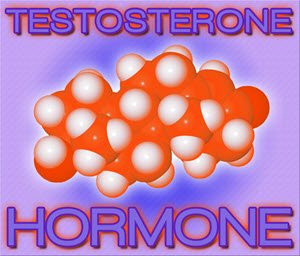Introduction
Substance abuse remains a significant public health concern in the United States, affecting millions of individuals across various demographics. Among the myriad of health issues associated with substance abuse, one often overlooked aspect is its impact on sexual health, specifically libido or sexual desire. This article delves into the complex relationship between substance abuse and low libido in American males, exploring the physiological and psychological mechanisms at play and highlighting the need for comprehensive interventions.
The Physiological Impact of Substance Abuse on Libido
Substance abuse can lead to a multitude of physiological changes that directly affect sexual function. For instance, alcohol, one of the most commonly abused substances, is known to depress the central nervous system, which can inhibit sexual arousal and performance. Chronic alcohol consumption can lead to hormonal imbalances, particularly affecting testosterone levels, which are crucial for maintaining libido in males. Similarly, opioids, such as heroin and prescription painkillers, can disrupt the endocrine system, leading to decreased testosterone production and, consequently, reduced sexual desire.
Moreover, stimulants like cocaine and methamphetamine, while initially increasing sexual arousal, can lead to long-term sexual dysfunction. These substances can cause vascular damage, impairing blood flow to the penis, which is essential for achieving and maintaining an erection. Over time, the use of these stimulants can result in a significant decline in libido, further exacerbating the cycle of substance abuse and sexual dysfunction.
The Psychological Effects of Substance Abuse on Sexual Desire
Beyond the physiological effects, substance abuse can also have profound psychological impacts on libido. Many individuals who struggle with substance abuse may experience depression, anxiety, and other mental health disorders, which can severely diminish sexual desire. The psychological toll of addiction, including feelings of guilt, shame, and low self-esteem, can further contribute to a lack of interest in sexual activity.
Additionally, the lifestyle associated with substance abuse often leads to social isolation and strained relationships, which can negatively affect one's sexual health. The inability to form and maintain intimate connections can lead to a decreased desire for sexual engagement, creating a vicious cycle where substance abuse further isolates the individual, perpetuating the decline in libido.
The Role of Comprehensive Interventions
Addressing the impact of substance abuse on libido requires a multifaceted approach that encompasses both medical and psychological interventions. Medical treatments may include hormone therapy to restore testosterone levels and medications to manage withdrawal symptoms and cravings. Psychological interventions, such as cognitive-behavioral therapy (CBT) and counseling, are crucial for addressing the underlying mental health issues and improving overall well-being.
Moreover, support groups and community resources can play a vital role in helping individuals overcome substance abuse and rebuild their lives. By fostering a supportive environment, these resources can help individuals regain their confidence and improve their relationships, which are essential for restoring sexual desire.
Conclusion
The relationship between substance abuse and low libido in American males is a complex and multifaceted issue that requires a comprehensive understanding and approach. By addressing both the physiological and psychological aspects of this problem, healthcare providers can develop effective interventions that not only help individuals overcome substance abuse but also restore their sexual health and overall quality of life. As the prevalence of substance abuse continues to rise, it is imperative that we prioritize research and resources to tackle this pressing public health issue.
Contact Us Today For A Free Consultation

- Physical Causes of Low Libido in American Males: Hormones, Illnesses, and Lifestyle [Last Updated On: February 20th, 2025] [Originally Added On: February 20th, 2025]
- Unraveling the Link Between Anxiety and Diminished Sexual Desire in American Men [Last Updated On: March 1st, 2025] [Originally Added On: March 1st, 2025]
- Revitalizing Desire: Strategies for Overcoming Low Libido in Long-term Relationships Among American Males [Last Updated On: March 1st, 2025] [Originally Added On: March 1st, 2025]
- Decoding Medical Science: A Comprehensive Approach To Low Libido Issues [Last Updated On: March 2nd, 2025] [Originally Added On: March 2nd, 2025]
- Comprehensive Overview of Male Libido Issues: Causes, Treatments, and Lifestyle Interventions [Last Updated On: March 3rd, 2025] [Originally Added On: March 3rd, 2025]
- Comprehensive Guide to Understanding and Managing Low Libido in Men [Last Updated On: March 4th, 2025] [Originally Added On: March 4th, 2025]
- Exploring Hormonal Influences on Male Libido: Testosterone, Thyroid, and Prolactin [Last Updated On: March 5th, 2025] [Originally Added On: March 5th, 2025]
- Understanding and Managing Low Libido in American Men: Causes and Treatments [Last Updated On: March 6th, 2025] [Originally Added On: March 6th, 2025]
- Understanding Post-Menopausal Libido: Hormonal, Physical, and Emotional Factors Impacting Sexual Desire [Last Updated On: March 7th, 2025] [Originally Added On: March 7th, 2025]
- Understanding Low Libido in Men: Causes, Impacts, and Effective Treatment Strategies [Last Updated On: March 8th, 2025] [Originally Added On: March 8th, 2025]
- Comprehensive Guide to Understanding and Managing Low Libido in Men: Psychological Perspectives and Solutions [Last Updated On: March 9th, 2025] [Originally Added On: March 9th, 2025]
- Navigating the Impact of Chronic Diseases on Male Libido: A Comprehensive Medical Insight [Last Updated On: March 14th, 2025] [Originally Added On: March 12th, 2025]
- Revitalizing Intimacy: Exploring Medical Therapies for Low Libido in Postpartum American Women [Last Updated On: March 13th, 2025] [Originally Added On: March 13th, 2025]
- Revitalizing Desire: Cutting-Edge Medical Treatments for Low Libido in American Males [Last Updated On: March 15th, 2025] [Originally Added On: March 15th, 2025]
- Psychological Causes of Low Libido in American Men: Stress, Depression, and More [Last Updated On: March 17th, 2025] [Originally Added On: March 17th, 2025]
- Low Libido in American Males: Health Risks and the Importance of Seeking Help [Last Updated On: March 17th, 2025] [Originally Added On: March 17th, 2025]
- Understanding Low Libido in American Males: Causes, Diagnosis, and Treatment Options [Last Updated On: March 18th, 2025] [Originally Added On: March 18th, 2025]
- Medication-Induced Low Libido in American Males: Causes and Management Strategies [Last Updated On: March 19th, 2025] [Originally Added On: March 19th, 2025]
- Understanding and Treating Low Libido in Men: Causes and Comprehensive Solutions [Last Updated On: March 19th, 2025] [Originally Added On: March 19th, 2025]
- Diabetes and Male Libido: Understanding and Managing Low Sexual Desire [Last Updated On: March 19th, 2025] [Originally Added On: March 19th, 2025]
- Chronic Illness Impact on Male Libido: Physiological, Psychological, and Management Strategies [Last Updated On: March 20th, 2025] [Originally Added On: March 20th, 2025]
- Medications Impacting Male Libido: Insights and Management Strategies for American Men [Last Updated On: March 20th, 2025] [Originally Added On: March 20th, 2025]
- Natural Supplements for Low Libido in Men: Efficacy, Safety, and Holistic Approaches [Last Updated On: March 21st, 2025] [Originally Added On: March 21st, 2025]
- Low Libido and Depression in American Males: Understanding and Treating the Connection [Last Updated On: March 21st, 2025] [Originally Added On: March 21st, 2025]
- Advancements in Treating Low Libido in American Males: A Comprehensive Approach [Last Updated On: March 22nd, 2025] [Originally Added On: March 22nd, 2025]
- Hyperthyroidism's Impact on Libido in American Males: Hormonal and Psychological Effects [Last Updated On: March 22nd, 2025] [Originally Added On: March 22nd, 2025]
- Understanding Low Libido in Women Over 50: Insights for American Males [Last Updated On: March 23rd, 2025] [Originally Added On: March 23rd, 2025]
- Understanding and Managing Low Libido in American Males: Causes, Diagnosis, and Treatment [Last Updated On: March 23rd, 2025] [Originally Added On: March 23rd, 2025]
- Understanding and Addressing Low Libido in American Males: Causes, Diagnosis, and Treatment [Last Updated On: March 23rd, 2025] [Originally Added On: March 23rd, 2025]
- Post-Pregnancy Low Libido in American Males: Causes and Solutions [Last Updated On: March 23rd, 2025] [Originally Added On: March 23rd, 2025]
- Low Libido in American Males During Partner's Lactation: Causes and Solutions [Last Updated On: March 23rd, 2025] [Originally Added On: March 23rd, 2025]
- Managing Low Libido in Male Surgical Patients: Causes, Impacts, and Strategies [Last Updated On: March 23rd, 2025] [Originally Added On: March 23rd, 2025]
- Understanding and Treating Low Libido in American Males: Causes and Solutions [Last Updated On: March 23rd, 2025] [Originally Added On: March 23rd, 2025]
- Postpartum Libido in Men: Medical Tips and Strategies for Enhancement [Last Updated On: March 23rd, 2025] [Originally Added On: March 23rd, 2025]
- Understanding and Addressing Low Libido in American Men: A Comprehensive Approach [Last Updated On: March 23rd, 2025] [Originally Added On: March 23rd, 2025]
- Alcohol's Impact on Male Libido: Physiological Effects and Management Strategies [Last Updated On: March 23rd, 2025] [Originally Added On: March 23rd, 2025]
- Revitalizing Male Sexual Desire: Understanding and Treating Low Libido Holistically [Last Updated On: March 24th, 2025] [Originally Added On: March 24th, 2025]
- Understanding and Addressing Low Libido in American Males: Causes, Impacts, and Solutions [Last Updated On: March 24th, 2025] [Originally Added On: March 24th, 2025]
- Understanding and Addressing Low Libido in American Men: Medical and Lifestyle Approaches [Last Updated On: March 24th, 2025] [Originally Added On: March 24th, 2025]
- Effective Interventions for Low Libido in American Men: A Comprehensive Guide [Last Updated On: March 24th, 2025] [Originally Added On: March 24th, 2025]
- Revitalizing Sexual Desire in Middle-Aged Men: A Holistic Approach [Last Updated On: March 24th, 2025] [Originally Added On: March 24th, 2025]
- Low Libido in American Women: Causes, Impacts, and Multifaceted Treatment Approaches [Last Updated On: March 25th, 2025] [Originally Added On: March 25th, 2025]
- Exploring Risks and Side Effects of Low Libido Treatments in American Males [Last Updated On: March 25th, 2025] [Originally Added On: March 25th, 2025]
- Post-Surgical Libido Recovery: Medical Tips for American Males [Last Updated On: March 25th, 2025] [Originally Added On: March 25th, 2025]
- Understanding Low Libido in Men: Causes, Impacts, and Holistic Solutions [Last Updated On: March 25th, 2025] [Originally Added On: March 25th, 2025]
- Understanding and Addressing Low Libido in American Men: Causes and Solutions [Last Updated On: March 25th, 2025] [Originally Added On: March 25th, 2025]
- Chronic Pain and Low Libido: Understanding the Medical Connection in American Men [Last Updated On: March 25th, 2025] [Originally Added On: March 25th, 2025]
- Managing Low Libido in Male Athletes: Hormonal, Nutritional, and Psychological Strategies [Last Updated On: March 25th, 2025] [Originally Added On: March 25th, 2025]
- Understanding and Overcoming Low Libido in American Males: A Comprehensive Guide [Last Updated On: March 25th, 2025] [Originally Added On: March 25th, 2025]
- Sudden Low Libido in American Males: Medical, Psychological, and Lifestyle Factors [Last Updated On: March 25th, 2025] [Originally Added On: March 25th, 2025]
- Addressing Low Libido in American Males: Psychological, Physiological, and Lifestyle Factors [Last Updated On: March 26th, 2025] [Originally Added On: March 26th, 2025]
- Understanding and Treating Low Libido in American Men: A Holistic Approach [Last Updated On: March 26th, 2025] [Originally Added On: March 26th, 2025]
- Strategies to Boost Low Libido in American Males: Medical and Lifestyle Approaches [Last Updated On: March 26th, 2025] [Originally Added On: March 26th, 2025]
- Low Libido in American Men: Causes, Treatments, and Lifestyle Impacts [Last Updated On: March 26th, 2025] [Originally Added On: March 26th, 2025]
- Exploring Low Libido in Men: Causes, Treatments, and Personalized Approaches [Last Updated On: March 26th, 2025] [Originally Added On: March 26th, 2025]
- Exploring Medical Patterns of Low Libido in Young American Males: Causes and Treatments [Last Updated On: March 26th, 2025] [Originally Added On: March 26th, 2025]
- Exploring the Link Between Low Libido and Weight Gain in American Males [Last Updated On: March 28th, 2025] [Originally Added On: March 28th, 2025]
- Hypertension's Impact on Libido in American Men: Causes and Management Strategies [Last Updated On: March 28th, 2025] [Originally Added On: March 28th, 2025]
- Low Libido in American Males: Causes, Risks, and Medical Importance [Last Updated On: March 28th, 2025] [Originally Added On: March 28th, 2025]
- Chronic Low Libido in American Males: Medical Signs and Management Strategies [Last Updated On: March 28th, 2025] [Originally Added On: March 28th, 2025]
- Age-Related Low Libido in Men: Causes, Treatments, and Future Innovations [Last Updated On: March 28th, 2025] [Originally Added On: March 28th, 2025]
- Low Libido and Unhappiness in American Men: Medical Insights and Interventions [Last Updated On: March 28th, 2025] [Originally Added On: March 28th, 2025]
- Lifestyle Changes to Boost Libido in American Males: A Medical Perspective [Last Updated On: March 28th, 2025] [Originally Added On: March 28th, 2025]
- Managing Low Libido in American Males Post-Chemotherapy: Medical and Lifestyle Approaches [Last Updated On: March 29th, 2025] [Originally Added On: March 29th, 2025]
- Revitalizing Sexual Health: Understanding and Overcoming Low Libido in American Males [Last Updated On: March 29th, 2025] [Originally Added On: March 29th, 2025]
- Understanding and Treating Low Libido in Men: A Holistic Approach [Last Updated On: March 30th, 2025] [Originally Added On: March 30th, 2025]
- Exploring Medical Causes and Solutions for Low Libido in American Men [Last Updated On: March 31st, 2025] [Originally Added On: March 31st, 2025]
- Antidepressants and Low Libido in American Males: Causes, Impacts, and Management Strategies [Last Updated On: April 3rd, 2025] [Originally Added On: April 3rd, 2025]
- Understanding Low Libido in Women: Medical Insights for American Males [Last Updated On: April 4th, 2025] [Originally Added On: April 4th, 2025]
- Exploring Causes and Solutions for Low Libido in American Men [Last Updated On: April 5th, 2025] [Originally Added On: April 5th, 2025]
- Understanding and Addressing Low Libido in American Men: Medical Insights and Solutions [Last Updated On: April 6th, 2025] [Originally Added On: April 6th, 2025]
- Understanding and Addressing Low Libido in American Males: Causes, Impacts, and Solutions [Last Updated On: April 7th, 2025] [Originally Added On: April 7th, 2025]
- Medical Procedures Impacting Libido in American Men: Causes and Management Strategies [Last Updated On: April 8th, 2025] [Originally Added On: April 8th, 2025]
- Medical Factors Impacting Low Libido in Women Under 40: Insights and Solutions [Last Updated On: April 8th, 2025] [Originally Added On: April 8th, 2025]
- Addressing Low Libido in Men: Causes, Diagnosis, and Multifaceted Treatment Approaches [Last Updated On: April 9th, 2025] [Originally Added On: April 9th, 2025]
- Medical Causes and Management of Low Libido in American Men [Last Updated On: April 12th, 2025] [Originally Added On: April 12th, 2025]
- Medical Causes and Treatments for Low Libido in American Men [Last Updated On: April 12th, 2025] [Originally Added On: April 12th, 2025]
- Managing Low Libido in American Males: Causes, Impacts, and Holistic Approaches [Last Updated On: April 12th, 2025] [Originally Added On: April 12th, 2025]
- Understanding and Addressing Low Libido in American Males: A Holistic Approach [Last Updated On: April 12th, 2025] [Originally Added On: April 12th, 2025]
- Understanding and Treating Low Libido in Men: Causes and Solutions [Last Updated On: April 15th, 2025] [Originally Added On: April 15th, 2025]
Word Count: 549




















